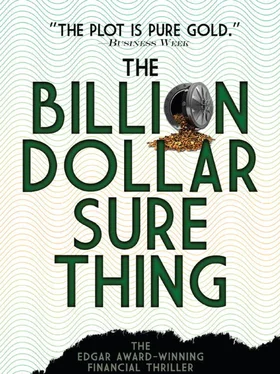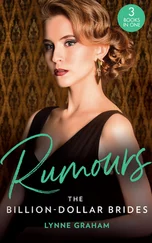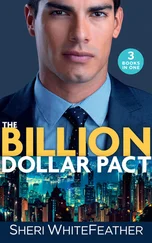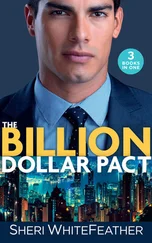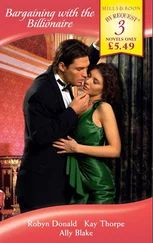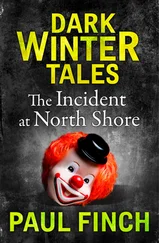Paul Erdman - The Billion Dollar Sure Thing
Здесь есть возможность читать онлайн «Paul Erdman - The Billion Dollar Sure Thing» весь текст электронной книги совершенно бесплатно (целиком полную версию без сокращений). В некоторых случаях можно слушать аудио, скачать через торрент в формате fb2 и присутствует краткое содержание. Город: Mineola, Год выпуска: 2018, ISBN: 2018, Издательство: Dover Publications, Inc., Жанр: Триллер, на английском языке. Описание произведения, (предисловие) а так же отзывы посетителей доступны на портале библиотеки ЛибКат.
- Название:The Billion Dollar Sure Thing
- Автор:
- Издательство:Dover Publications, Inc.
- Жанр:
- Год:2018
- Город:Mineola
- ISBN:978-0-48682-811-4
- Рейтинг книги:3 / 5. Голосов: 1
-
Избранное:Добавить в избранное
- Отзывы:
-
Ваша оценка:
- 60
- 1
- 2
- 3
- 4
- 5
The Billion Dollar Sure Thing: краткое содержание, описание и аннотация
Предлагаем к чтению аннотацию, описание, краткое содержание или предисловие (зависит от того, что написал сам автор книги «The Billion Dollar Sure Thing»). Если вы не нашли необходимую информацию о книге — напишите в комментариях, мы постараемся отыскать её.
Paul Erdman’s fast-paced, suspenseful story centers on a billion-dollar, top-secret coup intended to protect the U.S. dollar. In settings that range from Washington, D.C., to London, Paris, Moscow, and Beirut, a cast of memorable characters enact a plot that brings the world to the brink of the biggest financial explosion in history.
The Billion Dollar Sure Thing — читать онлайн бесплатно полную книгу (весь текст) целиком
Ниже представлен текст книги, разбитый по страницам. Система сохранения места последней прочитанной страницы, позволяет с удобством читать онлайн бесплатно книгу «The Billion Dollar Sure Thing», без необходимости каждый раз заново искать на чём Вы остановились. Поставьте закладку, и сможете в любой момент перейти на страницу, на которой закончили чтение.
Интервал:
Закладка:
Radazan, in due time, turned to Rosen. “First, Mr. Rosen, my uncle would like to apologize that he does not speak English. When he was a boy it had not been necessary. He would like to thank you for your visit. He apologizes for the lack of better facilities here but explains that he has been using this office in Beirut for the past forty years—and does not intend to change now.”
Rosen mumbled the usual reciprocal words, and Radazan passed them on.
Radazan then once again turned to Rosen. “My uncle has asked me to explain his situation. He is a banker. One of the most famous ones in the entire Near East. In fact, he also owns the bank where I work.”
Rosen must have shown his disbelief most obviously, for both Fezali and Radazan immediately broke out into laughter.
“I know that this is most difficult for you to imagine,” Radazan said, “but it is so. Let me explain.”
The story was not uninteresting. Fezali had already inherited from his father and grandfather a banking system which was in a tradition as old as the sands of the Levant, yet as modern as the drive-in-facilities which California could claim as its only important contribution to the world of finance. The Fezali family—brothers, cousins, nephews—had for generations controlled the money-changing facilities in and around Mecca and Medina. Such facilities consisted of a table and chair, covered from the burning sun, temporarily placed alongside the road or in the streets. The clientele were pilgrims from the world’s Moslem countries, ranging from nearby Egypt to faraway Pakistan and Indonesia. Mecca represented the fulfillment of the most fervent prayers of all Mohammedans—ranging from the very very rich to the very very poor. They often came with what amounted to the better part of their life’s savings in a myriad of forms, ranging from Maria Theresa thalers to napoleons to crumbled dollar bills. The Fezali family acted as their money changer. They conducted this type of banking with a speed and accuracy which had become legend. The logistics of the operations were as complex as the bewildering array of monetary units in which they dealt. Couriers, armed to the teeth and always in pairs, moved the funds in and out of the Mecca area. The ultimate staging point was Beirut. The means of transportation ranged from foot to camel to horse—and today—to fast cars and jet airplanes. The rates of exchange were set daily by the head of the family himself, Ali ben Fezali, and through some mysterious system of communication extended to the last roadside table within hours. Really very little had changed over many generations.
Then came oil, and immense amounts of money which the ruling class, with the best will in the world, simply could not spend as fast as it came in—with the result that the Fezali family’s ancient talents were suddenly in great demand. Stanley’s new principal explained it; Radazan translated.
“Suddenly my family had to expand its operations—to Kuwait, to Riad, to Qatar, to the Trucial States, to Abu Dhabi, and even to Oman, that desert pestilence. Iraq is not for us. We do not like those maniacs. Our friends bring much money to us. But we learn slowly. We have very simple operations. We have no organized money or capital markets in most places. Even in Beirut things are very small and limited. So we have no choice but to go abroad with our money. To Lloyds and Barclays, at first. These were the only places we would leave our money, in London, in sterling at 7 percent. We still leave a lot there, but we have been hurt. Two devaluations wiped out years of interest. So we have tried Switzerland. No devaluation, but also no interest. The Swiss feel that we must be thankful that they keep our money for us at zero percent, or maybe 1 percent or 2 percent less never-ending fees and charges and insolence. You know what I mean.”
Stanley only knew too well.
“The Dutch? Not bad. But a dull people, and a very crafty people. Born with fraudulent instincts, which, as a result of success, are encouraged as they grow older. The French we have also tried: too complicated. The Germans? Too German. So, with the help of my nephew here, we finally decided to try the United States. As an experiment. You know, I am sure, that it is not that hard to make money. But it is very difficult to preserve it, and dangerous to make money with money. The Koran is most wise on this subject. Money changing—yes, that we can do. But capital investment—that is something we must still leave to the capitalists, until we learn the art ourselves.
“That is why we came to New York, and that is why we have come to you, Mr. Rosen. Because we have heard that you are very successful with large amounts of capital. And now, I would like to know what you would do with my capital, if you take over a part of it to manage.”
It was Stanley’s turn. He had given the situation most careful thought during the time which had passed since Radazan’s approach in New York. He had developed an idea which, though daring and unusual, still was completely in keeping with his low-risk philosophy of money management. The only real problem had been timing. And here luck, which Rosen knew was one of the most important factors of all in financial affairs, may have appeared on the scene at just the right moment.
During Rosen’s weekend stopover in Paris, on route to Beirut from New York, he had taken advantage of an invitation to a cocktail party being thrown by a friend of a friend in that city. As usual, Stanley had once again wound up leaving with the prettiest girl there. A very tall redhead who, it later turned out, had a thing for short men like Stanley. The broad was apparently unbelievably well connected as the conversation during the rather long night had increasingly indicated. One of the most talkative screws he had ever met—but a damn good screw nevertheless, obviously with lots of practice. But what had hit Stanley like a bomb was an anecdote she had told—Stanley would have guessed around four in the morning—about her “steady,” apparently a most important Swiss banker. The poor bastard had not been able to come through the evening before, even though he had come to Paris for that single purpose. As the lengthy redhead had revealed, it was all the fault of the secretary of the treasury of the United States of America, and some other fellow with some international bank in Bâle—she didn’t recall all the details. But she recalled quite enough for Stanley, who, in contrast to his predecessor of the preceding evening, managed to combine business and pleasure very successfully that night.
Rosen turned to Fezali. “Mr. Fezali, let me tell you my investment philosophy in a few words. I don’t gamble. I take very carefully calculated risks. I do not promise to make 5 percent or 10 percent return on your money each year. But I can promise you that I won’t lose half of it. I don’t run either a casino or a mutual fund. I hate major downside risks. I am willing, however, to put money into anything, anywhere, provided the downside risk is measurable and acceptable and the chances of a good profit are better than 50 percent. If I am wrong on the profit, at least the capital base remains intact for the next round. Finally, I try not to work with my clients from behind a screen of mystery. If I intend to make a major move with their money, I explain my reasoning and intentions to them. If they don’t fully buy the idea, I will not proceed. One last thing. I put my own money into the same projects as those which I develop for my clients.”
Radazan translated all this for his uncle. Fezali was apparently impressed and in agreement.
Rosen continued. “I further feel most strongly that there is a specific time for every type of investment. There is a time to be in common stock and a time to stay completely out. There is a time for property investments, and there are periods when property should be avoided like the plague. There are times when one should be investing in Japan and others when one should be concentrating on Western Europe. I do not believe in spreading risk across the board, since I feel it is illogical to put money into things just for the sake of diversification, when you know full well that they will be losers. I believe that you must search out those very positive situations, and until you find them, park the money at a good solid rate of interest. Good opportunities do not fly in through the window and hit you on the head. They are developed through hard work. The implementation of an idea demands even harder work. That’s what I get paid for, and I expect to get paid well.”
Читать дальшеИнтервал:
Закладка:
Похожие книги на «The Billion Dollar Sure Thing»
Представляем Вашему вниманию похожие книги на «The Billion Dollar Sure Thing» списком для выбора. Мы отобрали схожую по названию и смыслу литературу в надежде предоставить читателям больше вариантов отыскать новые, интересные, ещё непрочитанные произведения.
Обсуждение, отзывы о книге «The Billion Dollar Sure Thing» и просто собственные мнения читателей. Оставьте ваши комментарии, напишите, что Вы думаете о произведении, его смысле или главных героях. Укажите что конкретно понравилось, а что нет, и почему Вы так считаете.
